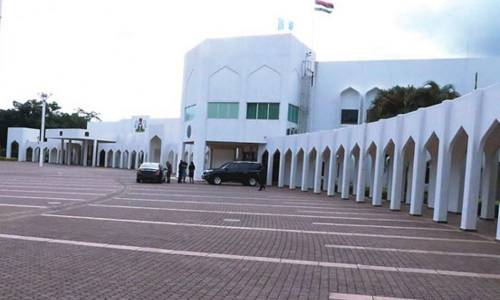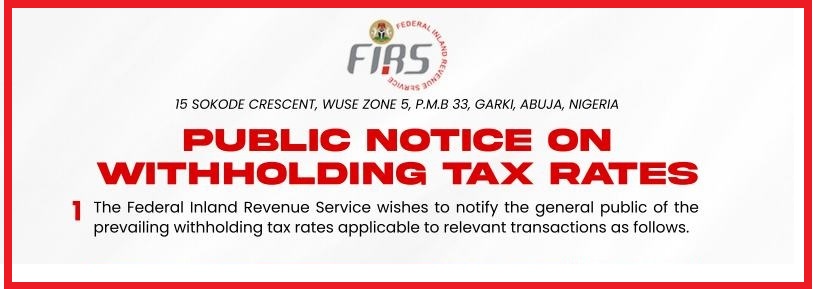By Oche Echeija Egwa
Every visitor to Nigeria’s seat of power, Aso Rock, is first struck by the beautiful scenery of green and white; our national colours. From the entrance, Pilot Gate, white edifices and nature’s greenery are tuned in a welcoming symphony. The serenity of the Presidential Villa belies flurry of activities, mostly planning meetings, brainstorming sessions and negotiations on sundry issues, both national and international.
Energy for work hardly dissipates at the seat of power. Outcomes of meetings, movements and actions matter to Nigerians, hence on February 25, 2021, the Presidential Communication Team (PCT), an umbrella body that brings together leaders of all media departments in the Villa, chaired by Vice President, Prof. Yemi Osinbajo, birthed the idea of a more regularized and formalized State House Briefing. The briefing, usually held at the Press Gallery, creates a more predictable and measured meeting point between government officials, State House Press Corps and Nigerians.
The PCT, which comprises media aides in the Office of the President, Vice President, First Lady and Chief of Staff, meet every week to gauge the pulse of the nation, and decide on government officials that should be invited to the specialized interaction. The invitation gives opportunities to public officials to ventilate, and bring clearer perspective on national issues. In the well-structured, no-holds-barred, meeting with journalists, progress on projects and services are explained, taking into cognisance the tripod vision of President Muhammadu Buhari for taking the country forward, security, economy and corruption.
The quality of the State House Press Corps animates discussions, especially at the question and answer session, with ranking journalists, both local and international, asking public officials penetrating and unedited questions. Carefully chosen by various media houses, majority of the newsmen have more than 20 to 30 years experiences in news reporting, covering presidents, politics and governance, with some already brandishing well-earned Ph.Ds. Facing the battery of newsmen, public officials present their score cards and prepare for hot-seating.
Little over a year, 34 sessions of the specialized State House Briefings have been held. Not surprising, the Minister of Finance, Zainab Shamsuna Ahmed, was the first guest on February 25, 2021. For close to two hours, Ahmed tackled issues on Nigeria’s development plans, double exit from recession, budget projections and constraints, inflationary trends and debt profile, and outlook on the economy, especially on job creation. With a mastery of figures and facts on the economy, accompanied by the Heads of parastatals in her ministry, Ahmed illuminated discussions on why certain decisions were taken, and long term beneficial implications for the citizenry. She assured the economy was on track.
Some public officials have had multiple invitations because of their peculiar portfolios. The Minister of Health, Dr Osagie Ehanire, had the highest number of appearances, three times. The sense of urgency that trailed Coronavirus saw more invitations to the Minister of Health, who explained response mechanisms since COVID-19 was reported in Nigeria on February 27, 2020. The minister clarified issues on partnerships with countries and health organisations, surveillance, treatment, vaccine administration and controversies, and sustenance of other health services. The specialized briefing turned out a veritable platform for citizen sensitization and mobilisation to take the vaccines, and explain government actions.
Dealing with many sensitive issues like accessibility, authenticity and implications of different vaccines, Dr. Ehanire was accompanied by the Director General of NAFDAC, Dr Mojisola Adeyeye, Executive Director/CEO of NPHCDA, Dr Faisal Shuaib and former DG, NCDC, Dr Chikwe Ihekweazu.
Due to the centrality of security in national development, more public officials in the sector have been featured in the specialized briefing. The National Security Adviser (NSA), Maj. Gen. Mohammed Monguno (Rtd) and Inspector General of Police, Usman Alkali Baba, have been featured twice. Other guests include the Minister of Defence, Maj. Gen. Bashir Salihi Magashi (Rtd), Minister of Interior, Rauf Aregbesola, Chief of Defence Staff, Gen. Lucky Irabor, Chairman, National Drug Law Enforcement Agency, Brig. Gen. Mohammed Buba Marwa, and Chairman of the Economic and Financial Crimes Commission, Abdulrasheed Bawa.
Armed with knowledge of the security networks, operations and challenges in the country, especially in his home State, Borno, Monguno showcased achievements in the North East, with many people now returning to their homes, schools and businesses re-opened, and gave insight into procurements of hardwares by the military, like the Tucanos, trainings on use of new security technology, deployment and partnerships. The NSA leaves the stage on an elevated note that peace and harmony remain realisable.
The NSA and security chiefs detailed efforts at fighting terrorism and banditry, imploring Nigerians to be more forthcoming on providing intelligence and trusting the security men deployed across the country. According to them, synergy and intelligence gathering are integral in winning the war against insurgents. The Inspector General of Police, Usman Alkali Baba, also explained welfare of the police, reforms and re-organisations to meet the changing dynamics of crimes.
Top government officials that have been featured at the briefings are: Minister of Communication and Digital Economy, Prof. Isa Pantami; Minister of Sports, Sunday Dare; Minister of Transportation, Rotimi Amaechi; Minister of Aviation, Hadi Sirika; Minister of Works and Housing, Babatunde Fashola, invited twice; Minister of Water Resources, Engr Suleiman Adamu; Minister of Niger Delta, Sen. Godswill Akpabio; Minister of Humanitarian Affairs, Sadiya Umar Farouq; Minister of Power, Abubakar Aliyu and Minister of Industry, Trade and Investment, Adeniyi Adebayo, who also featured twice, and Minister of Mines and Steel, Olamilekan Adegbite.
Other invited officials are: the Minister of State, Petroleum, Timipre Sylva, who has also featured twice, Minister of State, Labour and Employment, Festus Keyamo, Managing Director/CEO, Nigerian Sovereign Investment Authority (NSIA), Mr Uche Orji and former Executive Director/CEO, Nigerian Export Promotion Council, Segun Awolowo.
The invitations provided useful updates on infrastructure, like the landmark legacy project of the administration, Second Niger Bridge, road and rail projects across the country, and policy directions and regulations, particularly on subsidy in the oil sector, tax and reforms of licensing in mining.
In an interesting departure, yet deliberately structured for more clarity on the economy and security, three governors were featured on the State House Briefing: David Umahi, Governor of Ebonyi State, Prof. Babagana Umara Zulum, Borno State and Nasir el-Rufai of Kaduna State. Umahi highlighted the security and economic challenges in the South East, and successes recorded in integration and harmony, while Zulum shared more depth on the development in the North East, with huge successes in infrastructure, rehabilitation and re-integration of families. Most topical, was the issue of repentant terrorists that surrendered their weapons!
El Rufai brought journalists up to speed on developments in the North West, particularly Kaduna State, spotlighting the efforts of security outfits to tackle myriad security challenges, and unfolding political issues in the governing party, All Progressives Congress (APC).
Barely few weeks after the inaugural briefing, an exceptional guest took the hot-seat on March 15, 2021. Former Minister of Finance, and Director General of World Trade Organisation, Dr Ngozi Okonjo-Iweala, after a “thank you’’ courtesy call on President Buhari, spoke on the implications of her position for Nigeria and Africa, taking questions on Nigeria’s share of global trade, developing Nigeria’s services sector, COVID-19, attracting investment, training and capacity building, safe schools and AFCTA.
Answering a question on Dangote Refinery, which is the largest single-train refinery in the world, Okonjo-Iweala said: “I wish we had done it years ago. If we had done it years ago and encouraged Alhaji Dangote, who is doing a good thing, we would be producing our own fuel today.” Questions rained and flowed like river. Okonjo-Iweala answered cheerfully and masterly.
Unlike other press events at the Villa, the special State House Briefing draws strength from frequency, timeliness, accessibility and unrestricted conversations. Every session is streamed live on social media, like the State House Youtube channel, and comments and questions from the public are instantly integrated. Some media houses, like the NTA and AriseTV, have taken the liberty to air as a whole or some parts of the interaction, while the reports by journalists usually flood websites, blogs, social media handles, broadcast and print media, generating more discussions.
Interestingly, government officials, journalists, organizers, and the public now eagerly wait for the next opportunity to engage on the weekly interaction, with likely chances of going viral in the media. And as the conversation grows and becomes more predictable in the Press Gallery, the State House Briefing has achieved the goal of the PCT, creating and sustaining understanding between government and the people.
Oche Echeija Egwa is an Assistant Director, Information, in the Office of the Special Adviser to the President on Media & Publicity.







